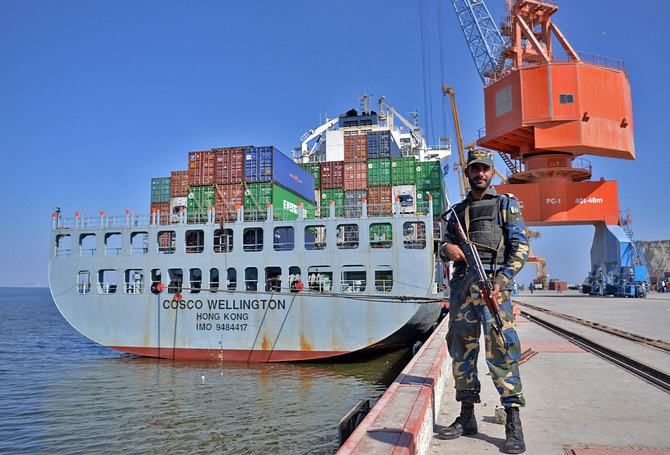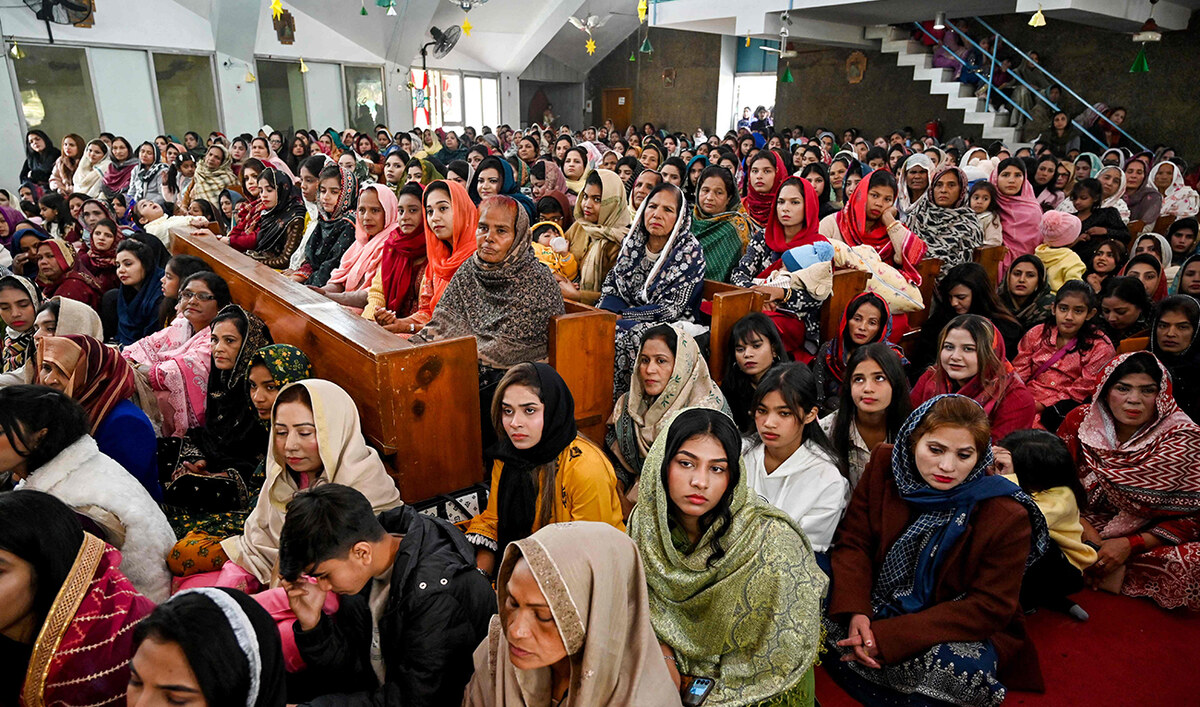KARACHI: Pakistani trade officials said on Thursday non-tariff barriers were making it difficult to increase exports to China, as local industrialists and officials called for reviewing a free trade agreement between the two countries which they said posed a threat to Pakistan’s economy.
According to the Chinese media which recently quoted their country’s General Administration of Customs, Pakistan’s export to China increased by 68.9 percent in 2021 to $3.58 billion while China’s export to the South Asian country rose by 57.8 percent to $24.23 billion.
Statistics compiled by Pakistan’s central bank reveal the country received $2.5 billion in export payments in 2021 while imports from China stood at $16.13 billion.’
A second phase of the free trade agreement with China was implemented on January 1, 2022, which enabled Pakistan to export over one thousand products on zero duty.
“Non-tariff barriers are the main obstacle to our exports to China,” Arif Ahmed Khan, the chief executive of Trade Development Authority of Pakistan (TDAP), told Arab News on the sidelines of a seminar on the impact of the free trade agreement between the two states, adding this could “be negotiated at political and diplomatic level.”
Khan said the seminar was organized to highlight issues that were making it difficult for Pakistan to fully benefit from the agreement.
“We have benefited from the free trade agreement,” he added. “But we have to see how we can further benefit from it, reduce our losses, and identify areas where we need to improve.”
Responding to a question about renegotiating the deal with China, the TDAP chief said “we first need to identify the areas where renegotiations are needed which, I think, include the removal of non-tariff barriers.”
Addressing the gathering, Irfan Iqbal Sheikh, president of the Federation of Pakistan Chamber of Commerce and Industry (FPCCI), said there was a widespread impression the agreement with China could pose a serious threat to the country’s industry and economy without its comprehensive and technical review.
“We should try to achieve maximum benefit from this agreement by further negotiating for favorable conditions,” he said.
The FPCCI president said dumping of Chinese goods in Pakistan had led to the closure of many cottage industries.
“The influx of cheap imports from China may have adverse economic impact, especially on domestic manufacturing sectors,” he said.
Sheikh told Arab News there were many things that needed to be “fine-tuned” in the free trade agreement.
“Pakistan’s actual exports to China should be between five and seven billion dollars in the next two to three years,” he added.
Hassan Daud Butt, chief executive officer of Khyber Pakhtunkhwa Board of Investment and Trade (KP-BOIT), told Arab News on the sidelines of the event a major issue impeding trade with China was the lack of understanding between the business communities of the two countries.
While he recognized that Pakistan’s trade with China had increased, he said Pakistani exporters should explore niche markets for their products.
He said the agreement could be renegotiated while pointing out that “monitoring and evaluation [of trade under the bilateral arrangement] should be a continuous process.”




















